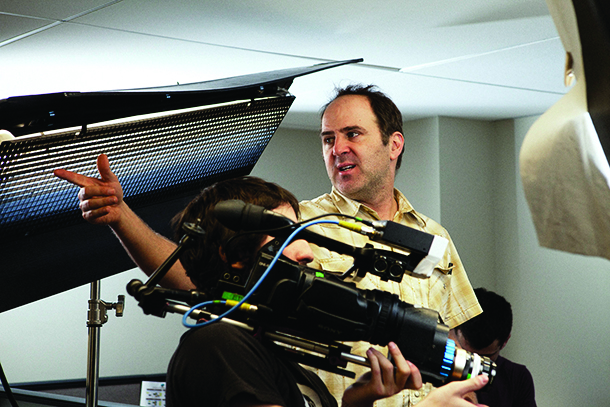
In October of 2009, Gallatin professor and filmmaker Keith Miller had been taking care of a lost dog for two months when a man named Shannon Harper showed up on his doorstep demanding the dog be returned to him. Little did Miller know that the argument that ensued between the two men that day would become the opening scene for Miller’s new short film, Welcome to Pine Hill, and that Harper would become the film’s lead actor.
“What I tried to do with all the characters as much as I could was to put the actors in the kind of situations that they might be in if there were no cameras around,” Miller said.
Miller’s latest short film, Welcome to Pine Hill, opens today at the IFC center. A continuation of his previous short, “Prince/William”, Welcome to Pine Hill explores the compelling and honest story of a reformed drug dealer turned insurance claims adjuster who begins to make peace with his past after being diagnosed with a serious medical condition.
For 9 months in the summer of 2010, Miller and his crew traveled around New York to shoot his film in Manhattan, Brooklyn, Queens and Hudson County. His latest film, like others in his past, allows him to turn personal experiences into video projects or short films that are either an experimental narrative or a documentary.
“Basically the idea of [this] movie is that within this frame we have a whole world and a documentary is the idea that this is not frame of fiction, it’s a true frame that you caught in the moment,” Miller said.
Alexander Mallis, one of the film’s cinematographers, met Miller in 2010 through the Brooklyn Filmmakers Collective, a film workshop group consisting of around 40-50 members that meets each week to criticize and examine each other’s short films and other works. After Miller saw a screening of “Spoils,” Mallis’ documentary about dumpster diving, he pitched the idea of a film collaboration to Mallis who happily agreed.
“Keith had the idea of doing these extended improvised takes [in his film],” Mallis said, exploring the work of the film’s cinematographers. “One of his big goals was to make this reality bleed into the fiction [of his film].”
In the end, Miller said he was content with the final product.
“At the end of the day, it is the movie I hoped I would make,” Miller said. “There’s problems in it. There’s things that, in an ideal world I would have done differently, but that’s part of the messiness of the process.”
Sanjana Kucheria is a contributing writer. Email her at [email protected].






















































































































































